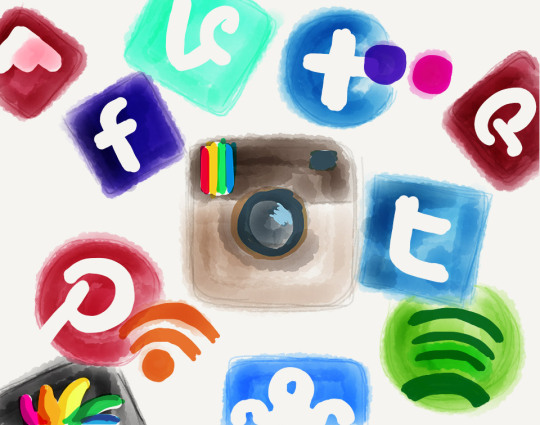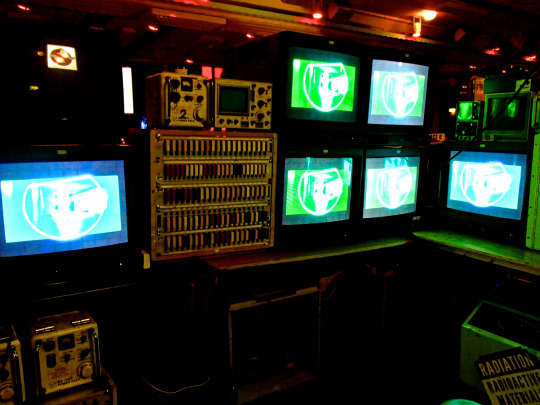#FutureCinema
Text

ECHOES OF THE FUTURE: A Cinematic Odyssey in 2060
In the vast canvas of the metropolis, the neon-lit marquee of 'The Odyssey' stood as a testament to a bygone era—a cinema palace where the magic of movies transcended time, now hosting experiences that were the stuff of science fiction itself.
The Resurgence of Reality
It was the year 2060, and I found myself at the threshold of “The Odyssey,“ the last standing movie theater in a world dominated by personal holo-screens. The technology that made this possible was rooted in the advancements of AR/VR integration with brain-computer interfaces, a field that had blossomed back in 2020, transforming the way we experience digital realms.
The Immersive Narrative
Inside, I was greeted by drones, descendants of 2020s autonomous flight technology, now outfitted with cameras to capture every angle for the most immersive films ever made. I took my seat, connecting to the neural synch device, an interface that evolved from the VR headsets and early BCI experiments, capable of inducing a full spectrum of sensory feedback.
The Journey Through Time
The movie began, and I was thrust into a narrative spun by 'The Storyteller's Ghost,' an AI that had learned from the creative endeavors in the early 21st century. This AI had been programmed to analyze storytelling techniques, crafting tales that could stir the soul.
The Reflection
As the credits rolled, I realized that the story I had just witnessed was not just a fiction but a reflection of our journey with technology—from the first clunky VR headsets to the sleek neural interfaces I had just detached from.
The Departure
Stepping out into the night, the tale of 'The Odyssey' echoed the sentiments of our current technological trajectory, where research in AR/VR and BCI is already shaping a future once imagined only in films.
And as 'The Odyssey' faded behind me, I carried with me a story—a blend of past dreams and future realities, a reminder that the cinema of 2060 was not just about the films but about the legacy of human innovation and our eternal quest to push the boundaries of experience.
Want to learn more about the state of the art of technology?
Follow our online science and art maganzine Utopiensammlerin. https://utopiensammlerin.com/en/
For reading on the current state of VR/AR and BCI technologies, the following articles provide comprehensive insights, take a look at those fields of research:
Brain-Computer Interfaces and Augmented/Virtual Reality
The Therapeutic Potential of VR/AR in BCI
AR/VR-based Training and Rehabilitation
#utopiensammlerin#Future Cinema Experience#AR/VR Integration#Brain-Computer Interfaces 2060#Immersive Narrative Technology#AI in Storytelling#Neon-lit Metropolis Autonomous Drone Technology Sensory Feedback Cinema Legacy of Human Innovation Time-Transcending Movies#FutureCinema#VirtualReality2060#NeuralSyncMovies#AIStoryteller#CinematicOdyssey#TechLegacy#2060Innovation#MetropolisNights#SensoryCinema#EchoesOfTheFuture#science fiction
1 note
·
View note
Text
Pensando el cine del futuro
Desde mi perspectiva, en los últimos años el cine ha ido acumulando un enorme potencial dado los radicales cambios tecnológicos de nuestra época; hoy el cine es más fácil de hacer y es más accesible que nunca. Cuando de un día para otro las salas de cine cerraron, pero las películas en streaming y la piratería no dejaron de correr, se comprobó que aún quedan cosas por aprender en el campo digital, que es un universo con muchos secretos aún. El Internet abrió una posibilidad de ampliar el tipo de contenido y la cantidad de “lugares” de exhibición disponibles para un realizador, así como la propia cantidad de realizadores y las empresas de streaming demostraron la poca cantidad de películas que se pueden exhibir en cualquier recinto cinematográfico. Además de que todavía quedan cosas por descubrir en el cine como narración y como lo conocemos dentro de su formato de pantalla rectangular con proporciones bidimensionales, también los avances de la conexión digital, nuevas herramientas de inteligencia artificial y nuevas formas de interactividad como la realidad virtual, le plantean al cine una enorme posibilidad de transformación y diversificación que ha sido muy poco explorada aún. El motivo del retraso de esta exploración yo se la atribuyo a un arraigado problema cultural que nos ha afecta a todos, y que deriva de las distintas implicaciones de vivir en un sistema capitalista globalizado, que afecta la vida en muchos sentidos; empezando por el de la homogeneización del ocio y de los gustos de la gente mediante los trucos de la mercadotecnia. Espectadores invariables, películas invariables. Esta estandarización del gusto popular hace imposible que la gente demande otro tipo de cine y hace que las plataformas de streaming vuelvan a caer en el mismo tipo de dominio que ejercen hoy en día las exhibidoras y distribuidoras preocupándose por estándares de contenido bien delineados, con el interés puesto en su flujo económico. Actualmente seguimos en un proceso de aprendizaje. Sin duda es peligrosa la innovación tecnológica tomando en cuenta que quienes tienen el acceso directo a ellas es la gente con capital, y por ende ellos siempre dominarán el terreno a no ser que algo en las reglas cambie.
Pensando en otra perspectiva, con las nuevas herramientas que brindan las computadoras, pensando que el 5G está por llegar, junto con el “Internet de las cosas”, no sabemos a que lugares se puede llegar a trasladar una pantalla de cine y cómo los cineastas habrán de adaptarse en algunos años para hacer algo que impacte e involucre a un espectador incluso cuando el contenido audiovisual se esté reproduciendo en una mesa o en el cristal de una regadera por imaginar algún ejemplo. Todos estos cambios nos encaminan a una revolución de la cinematografía como industria de entretenimiento, como arte y como ‘cosa’ en relación a nosotros. El rol que tendrá el espectador en esto es lo que más intriga genera, puesto que el sistema económico que elegimos para fundar nuestras sociedades conlleva que los productos sean perfeccionados en función de las necesidades del espectador. En base a esto, el desarrollo del cine puede encaminarse a ser lo más apegado a lo que la evolución física y cognitiva del ser humano demande.
En cuanto a la realidad virtual, por atractiva que luzca la idea de una introducirse en una película donde el espectador tenga participación física y aunque sería una experiencia fascinante, habrá que estar atentos al momento en que queramos dejar de llamarlo cine y que se convierta en algo más. Aunque muchos podrán refutar este argumento con sus opiniones, en la mía, al tratarse de un ser humano interactuando con espacios virtuales que no existen en la realidad y fueron creados en su totalidad por un programador o animador, que además el espectador tiene libertad de acción en la historia, podrá parecerse al cine pero en cuanto deja de lado tanto la representación fotográfica que constituye en gran medida la esencia de este medio, como la inevitabilidad de la imagen y por ello de la vida que conlleva el cine, deja de parecerme algo propio de llamarse como tal. Eso que significa la presencia de una realidad que existió en un espacio tangible pero manifestada en un espacio diferente como un presente ineludible, se pierde y se transforma. Por mucho que nos duela, las películas no son hoy lo que fueron para la gente años atrás. El cine tendrá que desarrollar la habilidad de mutar de cuerpo y de espacio, encontrando nuevas formas de dotar las narrativas y la experiencia sensorial, esto con nuevos valores que intenten suplir la magia de una sala de cine cuya muerte como espacio hoy se presenta como una posibilidad. Estas modificaciones a las que el cine tendrá que exponerse, podrán significar la reducción en la frecuencia de la experiencia cinematográfica como estamos acostumbrados, para dar lugar a fragmentaciones del cine, u otras nuevas manifestaciones que si bien nacerán de este, se podrán considerar cine mezclado con algo más. Y no se trata de ver esto como una carrera donde ciertos contrincantes están compitiendo y al final alguno ganará, sino de verlo como un camino hacia la entropía que se ha venido construyendo de diferentes maneras, donde muchos conceptos se reintegran en favor del ser humano del futuro, para hacer funcionar sus energías de la manera más efectiva para un presente.
0 notes
Photo

@geoffreycowper hits the air this week @theclubwithlucas and we share the gift of gab about #futurecinema & the need to #create during these times...📽#movielove 🎬#ReadyToRoll 🎞#celluloid & #vision 💯#real #truth #others (at English Radio) https://www.instagram.com/p/CA5zfKxIihi/?igshid=yzkqwtzng0d5
0 notes
Text
Schermo rettangolare o quadrato ?
Avete presente la mancanza di attenzione e pazienza riscontrata dalle persone e soprattutto dai giovani negli ultimi anni in tutti gli ambiti della vita quotidiana ?
Bene, se la vostra risposta è Sì vi esorto di continuare a leggere l'articolo altrimenti fatelo lo stesso visto che siete delle persone tanto pazienti e piene di curiosità.
Essendo il carattere del blog a scopo puramente cinematografico ho deciso di analizzare in questo articolo il fenomeno precedentemente accennato rivolto al mondo del cinema.
Più volte ho notato che le persone durante la visione un film non possono stare senza telefono in mano. Al che mi sono sorti tanti dubbi. Il film non ti piace ? La ragazza o il ragazzo ti sta ammazzando di messaggi affinché tu gli/le risponda ? Stai controllando i titoli in borsa ?
In realtà nel novanta per cento dei casi non è nessuna delle opzioni precedenti. Soprattutto la terza. Ma quello che fanno i "finti cinefili" mentre guardano un film con il cellulare in mano è molto più semplice: svago, specialmente sui social.

Loghi dei più famosi social network fonte:Flickr
Io capisco che un film possa non piacerti o addirittura possa farti letteralmente schifo ma la cosa assurda è che queste persone partono prevenute; prima ancora che il film inizi, ancora prima prima che il famoso leone della Metro-Goldwyn-Mayer emetta il suo famoso ruggito hanno già il cellulare in mano aperto sulla home di Instagram o di qualsiasi altro social network.
Inevitabilmente la mancanza di attenzione e di contenuti dell'uomo moderno ha colpito la sfera cinematografica.
Lo schermo quadrato ha avuto il sopravvento su quello rettangolare. In un futuro non troppo lontano potremmo sentire le nuove generazioni che si chiederanno perché i loro genitori guardino i film su uno schermo orizzontale.
Un'altra conseguenza visibile al giorno d'oggi è il rifiuto di film aventi contenuti troppo "impegnativi" per poterci dedicare sufficiente attenzione. Lo possiamo notare dalla moda delle serie tv degli ultimi anni.
Persone che non guardano un film cult di due ore e mezza perché ritenuto troppo "lungo" e intanto sono alla settima stagione di una serie di cinquanta minuti a puntata.

Alcune locandine di Serie TV �� fonte: Flickr
Una soluzione per riavvicinare i giovani al grande schermo potrebbe esserci, e potrebbe partire proprio dal mondo che ha sottratto le nuove generazioni al mondo del cinema. Pagine sui social dedicate ai grandi film e magari incentivate da attori famosi. Il passo successivo sarebbe la nascita di cortometraggi indipendenti realizzati da ragazzi e ragazze. Avete presente chi ha un canale di musica su YouTube e covera le nuove hit o pubblica i propri inediti ? Bene, questi canali potrebbero essere riadattati al mondo cinematografico. Così facendo ci sarebbe un avvicinamento di tipo pratico delle nuove generazioni alla sfera cinematografica.
In questo modo non si tratterebbe più solamente di guardare un film ma di essere i diretti protagonisti.
Davide Scovazzo
0 notes
Video
youtube
planting seeds goes to Marinduque
0 notes
Link
From Excommunication: Three Inquiries in Media and Mediation (2013) by Alexander R. Galloway, Eugene Thacker, and McKenzie Wark…
“Whereas haunted media expressed the mediation of the supernatural in positive terms, with weird media mediation only indicates a gulf or abyss between two ontological orders. Sometimes the supernatural is present but not apparent (e.g., an invisible creature that never- theless exists within our same reality, but outside the visible spectrum). At other times the supernatural is apparent but not present (e.g., unnamable entities from other dimensions). (133)
To summarize: media are “haunted” when they affirmatively mediate between two different ontological orders, and by trans- forming the object into a divine object (the artifact or the por- tal). By contrast, media are “weird” when they negatively medi- ate between two ontological orders, whereby the object recedes into a thing. (133-134)”
0 notes
Photo










Future Cinema: Ghostbusters
Incredible evening of immersive entertainment from Future Cinema, taken into the world of Ghostbusters.
1 note
·
View note
Video
#ghostbusters dance party #futurecinema (at Troxy)
0 notes
Video
youtube
Experiential Marketing Gives Cinema the Kiss of Life
Last night I went to cinema, this is not an unusual activity for me. In fact, I go to cinema on average about 5 times a month.
So as usual, I settled down in my classic red cinema seat - slightly uncomfortable and slightly sticky (don’t want to know). I took a sip of my absurdly large drink and dived into my quite bland tasting popcorn and it was at that moment I thought – wow, when did cinema become so mundane and mechanical.
Every time I go, it’s the same process each time: wait in line for the ticket, wait in line for the popcorn then plonk ourselves down and wait again. The only movement we undergo is to shovel the overpriced popcorn into our mouths!
As I looked around I noticed the decoration was completely uninspired and it looked identically to a million others. I wondered what could be done to shake things up a little bit and change the passive experience of cinemas.
I mean, the film companies are asking us to invest into this completely factious world, suspend our disbelief, but all they are giving us to work with are visuals and deafening sound. There’s no movement, no interaction and no real memorable experience.
Don’t get me wrong, I absolutely LOVE film - it’s just that I HATE cinemas.
When I arrived home I decided to do a little research into cinemas and the cinematic experience. I stumbled across this amazing company called ‘Secret Cinemas’, which completely turns cinema onto its head, and abides by four simple rules ‘Secret Audience’, ‘Secret Film’, ‘Secret Location’ and ‘Secret Worlds’. It invites you to completely submerge yourself within the cinematic experience and oh my, it looks amazing.
The experience revolves around their secret film and borrows elements from experiential marketing to make this event one the viewer will surely not forget. For their latest secret film, Saturday Night Fever, the customer received a dress code via email after buying their cinema ticket. Each customer were assigned a character profile, and had to assume this identity on the night.
Secret Cinema continued to bring Saturday Night Fever to life throughout the night by the use of rich 1970’s New York deco, disco-dancing competitions and by integrating roller skating actors into the audience, apparently their thick New York accent didn’t falter all night. That’s some commitment right there.
After looking at their website, Facebook page and any other source of information I completely fell in love with the idea. I think it’s brilliant how Secret Cinema have combined the best parts of experiential marketing and made the viewer an individual consumer, rather than one person among the masses of dark red seats. The personal interaction between the actors (which are essentially brand ambassadors) and audience ensure the customers invested and bought into the product and brand identity 100%.
I hope these types of pop up, fully dedicated cinematic events spread throughout the UK because personally I think we are crying out for something to shake up our cinematic norms.
I NEED to buy tickets now.
Yasmin
1 note
·
View note
Photo


Johnny: Nobody puts Baby in a corner. - LONDON
3 notes
·
View notes
Video
Who you gonna call? #futurecinema #ghistbusters (at Troxy)
0 notes
Video
#ghostbusters #80's #party #troxy #futurecinema
1 note
·
View note